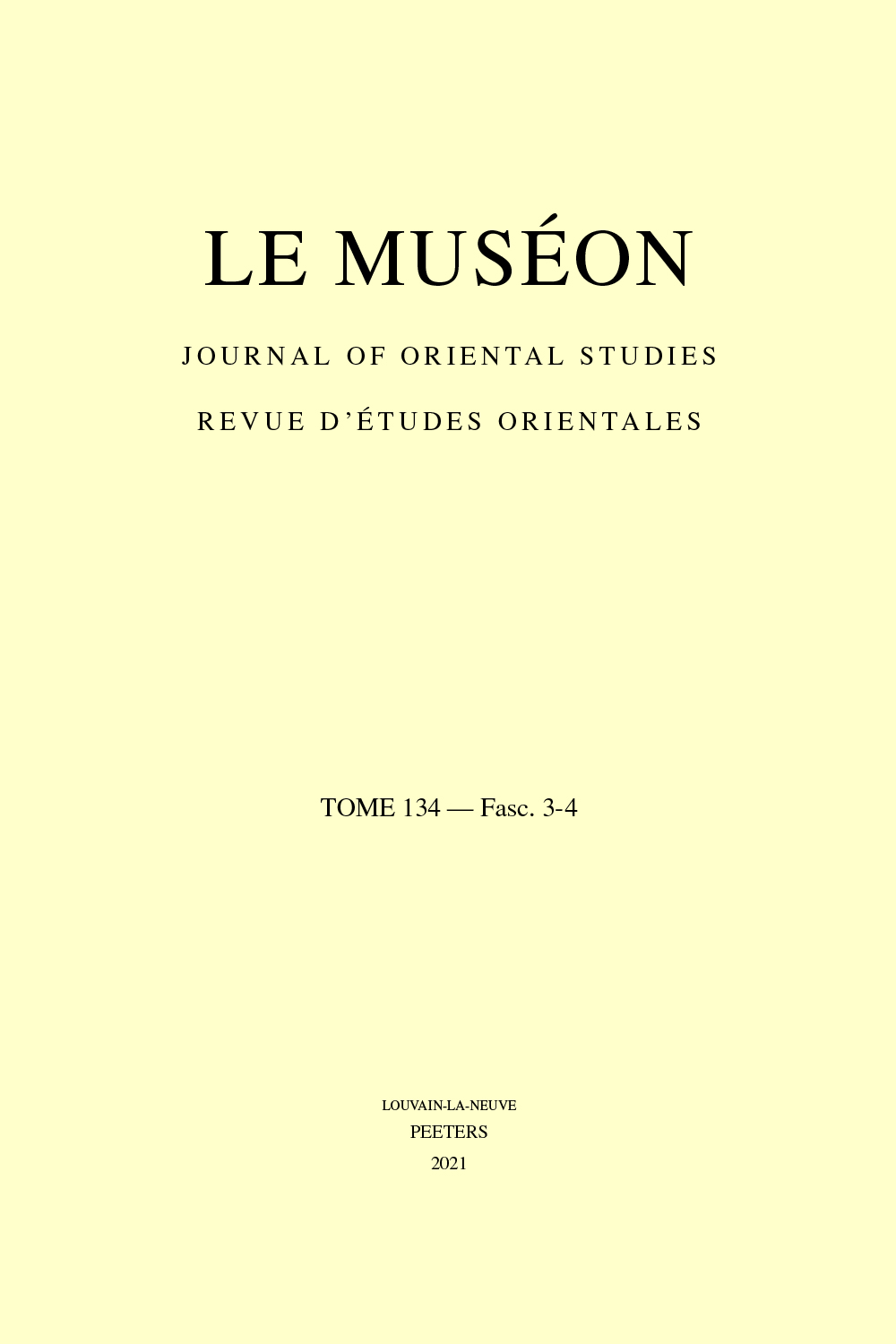 previous article in this issue previous article in this issue | next article in this issue  |

Preview first page |
Document Details : Title: Constantinus Novus Subtitle: Zum geschichtlichen Hintergrund des apokryphen Freundschaftspaktes zwischen Konstantin und Trdat, Grigor dem Erleuchter und Papst Silvester Author(s): HALFTER, P. Journal: Le Muséon Volume: 119 Issue: 3-4 Date: 2006 Pages: 399-428 DOI: 10.2143/MUS.119.3.2017954 Abstract : One of the basic texts about the relationship between the Armenians in Cilicia and the Latin world was the apocryphical Letter of Love and Concord between Emperor Constantine and King Trdat, Gregory the Illuminator and Pope St. Sylvester. Pretending to be written in the fourth century it was in reality a forgery fabricated at the end of the twelfth century. The main points of its contents are: Constantine has appointed Trdat with imperial dignity and has made him his proxy in the eastern parts of the Empire. The same is done to Gregory the Illuminator. Pope Sylvester has ordained him as autocephalous patriarch of the Armenians with the rights to consecrate the catholicoi of the Georgians and the Caucasian Albanians. The patriarchs of Jerusalem, Antioch and Alexandria were to be installed by him as papal representative for the eastern parts of Christianity. In Jerusalem the Armenian possession of the monastery of St James is garanteed by Constantine, and in the Church of the Holy Sepulchre he also gave the Armenians rights equal to the Greeks and the Latins. No doubt, the Letter of Love and Concord had the purpose to justify the friendship of the Armeno-Cilician King Levon I with the Roman Church and the Western Empire, but this orientation should not imply the renounciation of the own political and ecclesiastical indenpendence. The Letter of Love and Concord interpretes the coronation of Levon I, which was fulfilled with the assistence of the Western Empire and the Papacy, as the renewal of glorious Armenian past. Furthermore the political dispositions of the Letter of Love and Concord with their harsh antibyzantine implications are corresponding with the political ambitions of Emperor Henry VI in the eastern parts of the Mediterreanean. Emperor Henry’s VI position as a great power was a real danger for the Byzantine Empire. The crusade he prepared would give him hegemony in the Levant. The Letter of Love and Concord shows, that Levon I, like Amalrich of Cyprus and Bohemund III of Antioch — vassal of the German Emperor —, dreamed to profit from this political situation. The Armenian king hoped the Byzantine Empire would vanish and he would become the representative of the only Emperor of the East. If Jerusaleme would be reconquered, the Armenians would get equal rights as the Latins at the Holy Places. |
|


